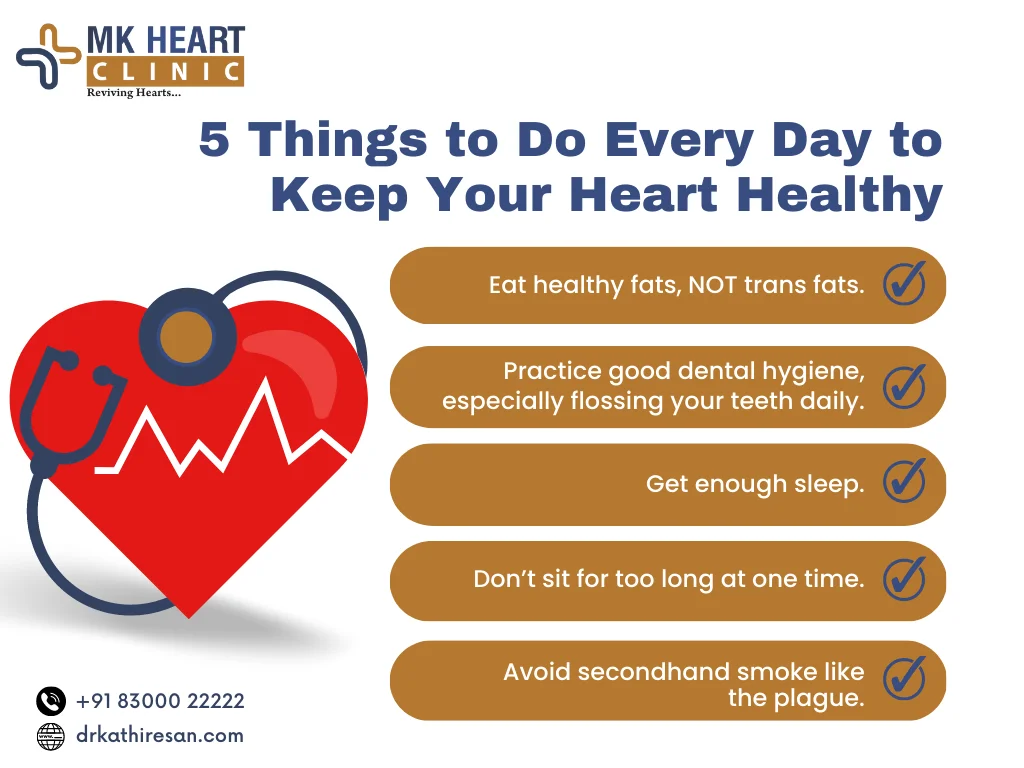Heart disease is the leading cause of death for both men and women in India. It is a serious condition that can lead to several health problems, including heart attack, stroke, and even death. While heart disease can affect anyone, certain risk factors increase your chances of developing it. This article will discuss some of the most common factors of Risk For Heart Disease and what you can do to reduce your risk.
The Risk Factors for Heart Disease Include
Heart disease is a serious condition that can lead to stroke, heart attack, and even death. It is important to understand your risk factors to reduce your risk for heart disease. The ranging risk factors for heart disease include:
- Smoking: Cigarette smoking greatly increases your risk of developing coronary artery disease, which is the most common type of heart disease.
- High Blood Pressure: Hypertension (high blood pressure) puts strain on the cardiovascular system and can increase your risk of heart attack or stroke.
- Lack of Exercise: A sedentary lifestyle puts you at increased risk for heart disease. Exercise helps keep the cardiovascular system healthy and reduces your chances of developing obesity or diabetes – both major causes of heart disease.
- Obesity/Diabetes: Being overweight or having diabetes greatly increases your chance of developing heart disease. These conditions are associated with high levels of cholesterol and triglycerides, which can damage the arteries and promote plaque build-up.

What Behaviors Increase the Risk of Heart Disease?
Understanding your behavioral risk factors is an important step in preventing heart disease from occurring. There are many things you can do to reduce your risk, such as eating a healthy diet, exercising regularly, and quitting smoking. Don’t wait until it’s too late – start taking steps today to protect your heart and improve your health! Some of the attitudes to be changed off like: –
Cigarette smoking is one of the biggest contributors to heart disease. Tobacco smoke contains harmful chemicals that damage your arteries and increase your heart attack or stroke risk.
Eating a diet high in having high saturated fats and cholesterol is connected to high blood pressure Which is another major contributor to heart disease. When your blood pressure is high, it puts extra strain on your heart and increases your chances of having a stroke or other cardiovascular problems.
Even adding too much salt to the diet can raise your blood pressure condition like atherosclerosis.
Not doing enough physical activity can be a Risk For Heart Disease including obesity, high blood pressure, high cholesterol, and diabetes. Regular exercise can reduce the Risk For Heart Disease.
Drinking too much alcohol can also raise the Risk For Heart Disease. It increases blood pressure and also increases levels of triglycerides, a fatty substance in the bloodthat leads to heart stroke and heart attacks.
There are many other risk factors for heart disease, including obesity, and lack of exercise, Family History Of Heart Disease can also be part of your Risk For Heart Disease.
But don’t worry – There are things you can do to it to avoid such risk!
- Like avoiding drinking alcohol and consuming tobacco.
- Regular physical exercise.
- Avoid eating saturated fats and cholesterol-related food substances in your diet.
- Do not consume too much salt in your diet.
- Eat a healthy diet full of and nutrients foods.
Foods that can enhance your heart health are
- Tomatoes: Eat a raw tomato daily because it maintains the oxidation of LDL cholesterol and reduces the amount of cholesterol in the blood.
- Walnuts: Can eat a few walnuts it also same prevents the oxidation of LDL cholesterol and reduce triglycerides.
- Spinach: There is Vitamin C, beta-carotene, and other nutrients in spinach work wonder to maintain the level of oxidized cholesterol building in blood vessel walls.
What Dietary Adjustments Can I Make to Lower My Risk of Heart Disease?
Reducing the risk of heart disease involves making mindful dietary choices. Prioritize a heart-healthy diet by incorporating:
Balanced Nutrition: Consume a well-balanced diet rich in fruits, vegetables, whole grains, lean proteins, and healthy fats.
Limiting Saturated and Trans Fats: Reduce the intake of saturated and trans fats found in processed foods, fried items, and certain cooking oils.
Controlled Sodium Intake: Monitor sodium intake by minimizing the use of salt and choosing low-sodium alternatives.
Omega-3 Fatty Acids: Include sources of omega-3 fatty acids, such as fatty fish, flaxseeds, and walnuts.
Moderation in Sugar Consumption: Limit added sugars present in sugary beverages, desserts, and processed foods.
Portion Control: Practice portion control to avoid overeating and maintain a healthy weight.
Making these dietary changes can contribute significantly to reducing the risk factors associated with heart disease, promoting overall cardiovascular health.
How do Genetics and Family History also Affect the Risk for Heart Disease?
A Family History Of Heart Disease is also another part that affects the individuals through genes, that process is called heredity. Genetic factors likely: –
High Blood Pressure
Heart Disease
High Cholesterol
Diabetes
All these are common hereditary factors that everyone has in their family. At least one or two are affected by the above risk. Therefore, a family history of heart disease also shares common environments like other factors.
Conclusion
All these are a few tips and risk factors for heart disease Kindly go through the blog and just read at once what are the factors for heart disease and what behavioral attitude can risk you for heart stroke and heart attack. Stay healthy by eating the best food which is discussed above here in this blog to enhance your heart health.



